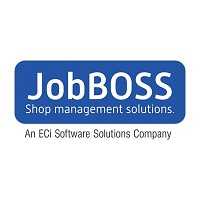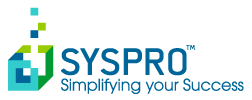What Is Job Shop Software?
Job shop software is a form of computer software specifically developed to streamline and optimize the operations of a job shop, also known as a contract manufacturer or machine shop. It is an essential tool for firms that produce products to client requirements, such as bespoke parts, assemblies, and prototypes. This type of software is extremely versatile and may be utilized in a wide range of industries, including automotive, aerospace, electronics, and more.
It is specifically tailored to the unique issues and complexities of job shop production, such as managing many projects, maximizing resources, and achieving tight deadlines. One of the most important characteristics of job shop software is the ability to track and control the whole production process, from quote to invoice. It enables users to generate accurate quotations and estimates, handle orders, organize and prioritize work, maintain inventory and raw materials, and monitor progress in real time. This not only helps firms deliver products on time and within budget, but it also allows them to quickly identify and rectify any difficulties or delays.
Furthermore, work shop software has comprehensive reporting and analytics capabilities, enabling firms to obtain vital insights into their performance, discover areas for improvement, and make sound decisions. It also works with other important software systems, including as accounting and customer relationship management, to provide seamless and effective operations.
Overall, work shop software is a great resource for firms seeking to improve efficiency, production, and profitability in a highly competitive market. By optimizing procedures, minimizing errors, and enhancing communication, firms may provide high-quality products to their consumers while preserving a competitive advantage. With so many options on the market, it is critical for purchasers to carefully assess their individual needs and select the software solution that best meets their business objectives.
What Are The Recent Trends In Job Shop Software?
In recent years, work shop software has evolved significantly to meet the needs of modern manufacturing organizations.
These changes have improved the usefulness and efficiency of work shop software, allowing organizations to simplify operations and increase production.
1. Cloud-Based Solutions: The introduction of cloud-based job shop software transformed the business. These technologies provide quick accessibility, real-time updates, and lower infrastructure expenses. Cloud-based software enables businesses to access data and engage with team members from any location, making it perfect for remote work.
2. ERP Connections: To improve workflow and data management, job shop software now includes connections with common Enterprise Resource Planning (ERP) systems. This integration allows organizations to transfer data effortlessly between the shop floor and the back office, avoiding manual data entry and reducing errors.
3. Internet Of Things (IoT) Connectivity: With the emergence of Industry 4.0, job shop software now includes IoT connection, allowing firms to automate operations, remotely monitor equipment and machines, and collect real-time data. This trend has dramatically increased production efficiency, reduced downtime, and enabled predictive maintenance.
4. Mobile Applications: The industrial industry is increasingly embracing mobile devices, and job shop software is no exception. Many software suppliers now provide mobile applications, which give businesses on-the-go access to critical data and real-time updates, improving decision-making and productivity.
5. Artificial Intelligence (AI) And Machine Learning: Job shop software now includes AI and machine learning capabilities, providing firms with new tools for data analysis, predictive modeling, and advanced planning. These technologies provide useful insights into manufacturing processes, allowing firms to make data-driven decisions and enhance operations.
Benefits Of Using Job Shop Software
Job shop software is a vital tool for any manufacturing organization. This robust program has numerous benefits that can streamline and increase the overall effectiveness of job shop operations.
We'll look at the top benefits of adopting job shop software and why it's essential for any modern manufacturing organization.
1. Streamlines Job Management And Scheduling: One of the key advantages of adopting job shop software is that it simplifies task administration and scheduling. This program enables organizations to develop a single platform for recording and accessing all job-related information, including client details, project timelines, and resources. This eliminates the need for manual record-keeping and lowers the chance of errors, increasing job scheduling accuracy and efficiency.
2. Improved Inventory Management: Job shop software provides sophisticated inventory management features, allowing organizations to accurately track and manage their inventories. This allows firms to simply determine whether to replenish materials, check stock levels, and avoid overstocking or stockouts. This not only saves money, but also ensures that manufacturing runs smoothly.
3. Real-Time Monitoring And Reporting: Job shop software provides business owners and managers with real-time visibility into the production process. This means they can keep track of the status of jobs, discover and resolve difficulties quickly, and make informed decisions based on reliable data. Furthermore, the program may create thorough data on task progress, inventory levels, and other key variables, enabling for more accurate forecasting and strategic planning.
4. Improved Communication And Collaboration: Effective communication and teamwork are critical to the success of any firm, and job shop software makes it easier to achieve these objectives. The program enables seamless communication between many departments, such as sales, production, and shipping, by offering a centralized platform for sharing all essential information. This not only enhances teamwork, but also lowers the likelihood of miscommunication and errors.
5. Increased Productivity And Efficiency: Job shop software helps firms increase productivity and efficiency by automating various laborious and time-consuming tasks. This allows staff to focus on more important activities rather than spending hours on paperwork and data input. Businesses that improve their productivity and efficiency can hire more people and generate more income.
Important Factors To Consider While Purchasing Job Shop Software?
When it comes to job shop management, having the correct software is critical to success. With so many job shop software options on the market, it can be difficult to determine which one is ideal for your company. But do not worry, we have developed a list of crucial criteria to consider while selecting work shop software.
1. Understanding Your Business Needs: Before you begin looking for job shop software, you must first determine what your company's needs are. Ask yourself what features and functions you require. Do you require inventory management, scheduling, or accounting capabilities? Identifying your precise requirements will help you limit down your selections and find software that fulfills them.
2. User-Friendly Interface: The job shop software you select should have a user-friendly interface. A convoluted and confusing software can only cause annoyance and time loss. Look for software that is intuitive and simple to use, with clear and straightforward instructions. You can even request a demo or free trial to evaluate the software's usability.
3. Customization And Scalability: Your company may grow and evolve over time, thus your software should be adaptable to these changes. Look for work shop software that is customizable to your specific business procedures and can scale with your demands. This will save you the headache and expense of switching to new software in the future.
4. Integration With Existing Systems: If your company already uses other software systems, it is critical to determine whether the job shop software can interact with them. A smooth interface will increase efficiency and eliminate duplicate data entry, saving you time and effort.
5. Data Protection: Given that the software contains sensitive corporate and client data, data protection must be prioritized. Look for software that supports data encryption, secure backups, and password protection. Additionally, examine where your data will be housed, whether in the cloud or on-premises, and determine which choice is best for your business.
6. Customer Support And Training: Technical issues and doubts are unavoidable when using any product. That is why it is critical to review the software company's customer support alternatives. Look for options such as live chat, phone help, or email assistance, and make sure they are available during your office hours. In addition, inquire whether the software has training tools or user guides to assist you and your team in quickly becoming acquainted with it.
What Are The Key Features To Look For In Job Shop Software?
When looking for the best job shop software, there are a few crucial elements to examine to guarantee it matches your company's specific requirements. These features will not only help to streamline business procedures, but also increase productivity and profitability.
Here are the four key elements you should look for in job shop software:
1. Customizable Job Tracking System: Job shop operators must be able to track jobs at various levels of completion. Look for software that includes a configurable job tracking system. This allows you to monitor the progress of each task from beginning to end, ensuring that it is finished on schedule and within budget.
2. Real-Time Inventory Management: To stay on track with production schedules, you must have accurate and up-to-date inventory levels. A decent job shop software should include real-time inventory management to help you maintain ideal inventory levels and avoid stockouts.
3. Resource Management: Effective resource management is critical to the success of any job shop. Look for software that includes functions like production scheduling, labor tracking, and machine utilization reports. These tools will help you plan and deploy resources more efficiently, resulting in more productivity and lower expenses.
4. quotation And Estimating: As a work shop owner, you must have a rapid and precise quotation and estimating procedure. Look for software that has a simple interface and allows you to easily generate quotes and estimates utilizing templates, historical data, and cost databases. In addition to these crucial functions, make sure the job shop software interacts effectively with your other systems, such as accounting and shipping.
It should also include powerful reporting and analytics tools to assist you in making data-driven decisions and improving your company's overall performance. By taking these crucial aspects into account, you can choose the best job shop software for your company's specific demands and help you achieve your objectives easily.
Why Do Businesses Need Job Shop Software?
Job shops are enterprises that produce small batches or one-of-a-kind items, usually on a bespoke or made-to-order basis. These firms have distinct obstacles as compared to mass production manufacturers, making it critical for them to have the necessary tools to manage their operations successfully. This is where the job shop software comes in. First and foremost, job shop software offers organizations a streamlined and unified system for order management, production scheduling, and inventory tracking.
This reduces errors and delays, ensuring that orders are executed on schedule and according to the customer's exact specifications. Businesses using job shop software can quickly manage complex orders with many parts and specialized needs, saving them time and effort. Furthermore, job shop software has sophisticated features tailored exclusively to the demands of job shops, such as job costing and estimation.
This helps firms to correctly determine the cost of each order, including materials, labor, and overhead, allowing them to price their products competitively while still profiting. It also enables them to deliver accurate quotes to customers, which can help businesses secure new business and keep existing customers satisfied. Another significant advantage of job shop software is its ability to interact with other systems, including accounting and customer relationship management (CRM) software.
This speeds data entry and removes the need for manual information transfer across systems, lowering the chance of errors and duplicate data. It also gives organizations a comprehensive perspective of their operations and consumers, enabling better decision-making and increasing overall efficiency. In addition to these essential elements, work shop software may include functionality such as machine scheduling, job tracking, and reporting.
This enables firms to monitor their manufacturing processes in real time and make necessary adjustments to achieve optimal efficiency and output. Overall, it is evident that job shop software is an essential tool for companies in this sector. It streamlines and automates procedures, increases accuracy and efficiency, and delivers important insights and data to aid decision-making. With ever-increasing expectations and competition in the job shop industry, investing in the correct software can help firms get a competitive advantage and succeed in today's fast-paced business environment.
How Much Time Is Required To Implement Job Shop Software?
The time required to implement job shop software varies according to the individual needs of each firm. The implementation procedure can last anything from a few weeks to many months.
To get a more precise time period, consider the following factors:
1. Size And Complexity Of Your Business: If your company has a significant number of procedures and data, it may take longer to integrate them all into the software. On the other hand, smaller organizations with simpler processes may require less time to execute.
2. Customization Requirements: If your company's procedures are unique and require software adaptations, the implementation process may take longer. This is because the program must be customized to fit your individual requirements and workflows.
3. Training And Onboarding: All employees must be trained on how to utilize the job shop software properly. Depending on the size of your staff, the training procedure can take some time. Before fully adopting the program, make sure that all staff are comfortable using it.
4. Data Migration: If you are transitioning from another software or system, moving data to the new software may take some time. It is critical to verify that all data is accurately transmitted to avoid future difficulties.
5. Technical Help And Troubleshooting: Even after extensive testing, technical issues may develop throughout the implementation process. It is critical to have technical support accessible to address any concerns and keep the implementation process on track. Overall, the time necessary for implementation will vary depending on the specific demands of each organization. It is critical to collaborate closely with the software vendor to create a realistic timeframe and ensure a successful and efficient deployment process.
What Is The Level Of Customization Available In Job Shop Software?
When it comes to work shop software, personalization is critical to consider. Every manufacturing company has distinct procedures and requirements, so one-size-fits-all software may not be the ideal answer. This is where the degree of customization in work shop software becomes critical. In general, work shop software provides a high level of customisation to meet the unique needs of each firm.
It allows the user to customize the software to match their specific workflow, processes, and terminology. This results in a highly tailored experience, which can significantly boost efficiency and productivity. The capacity to create and alter job orders is a key feature of customisation in job shop software. This enables users to define the particular processes and tasks required for each job, as well as assign resources and set deadlines.
This level of customization guarantees that the software integrates with the company's existing operations rather than pushing it to adjust to a new system. Another critical component of customization in work shop software is the ability to define and track custom fields. These fields can be used to store additional business-specific data, such as client information, product specs, or production notes.
This not only provides for a more precise and ordered process, but it also ensures that all relevant information is readily available. Furthermore, many work shop software includes the ability to interact with other systems or software. This enables organizations to integrate their job shop software with current ERP or accounting systems, resulting in a full view of their operations. Such interfaces can be tailored to the specific needs of the organization, significantly improving data accuracy and visibility.
Which Industries Can Benefit The Most From Job Shop Software?
Job shop software has become a crucial tool for enterprises across industries, giving an efficient and streamlined approach to operations management. But which sectors will profit most from this software?
Let's look at some of the top sectors where job shop software can help enhance operations and production.
1. Manufacturing Industry: The manufacturing business employs complicated procedures that necessitate rigorous planning and scheduling to assure timely delivery of items. Manufacturers can use job shop software to track production processes, check inventory levels, and manage their workers more efficiently. The program also supports real-time data tracking, allowing firms to make more informed decisions and respond swiftly to changes in demand.
2. Automotive Industry: The automobile sector is extremely competitive, necessitating precision management of operations, deadlines, and costs. Job shop software can assist automotive companies in optimizing their supply chain, lowering inventory costs, and improving time-to-market. The software, which includes capabilities such as work costing and scheduling, helps automotive companies maintain track of their operations, minimize delays, and successfully satisfy customer needs.
3. Aerospace And Defense Industry: The aerospace and defense industries require tight compliance with quality standards and regulations. Job shop software allows businesses in this industry to track and manage their supply chain, adhere to strict quality control requirements, and keep detailed records for audits. The software's real-time data tracking and reporting tools assist businesses in identifying areas for improvement and increasing productivity.
4. Electronic Industry: The electronics business has tight deadlines and huge volume orders, making it difficult to manage production operations properly. Job shop software offers organizations in this area a full solution for tracking orders, managing inventories, and automating repetitive processes. This not only helps to streamline operations, but also ensures consistent quality and timely delivery.
5. The Furniture And Woodworking Industry: Job shop software is also extremely useful for organizations in the furniture and woodworking industries. With project management, CAD/CAM integration, and material tracking capabilities, the program assists furniture makers in optimizing their processes, reducing waste, and increasing resource efficiency. This can lead to cost savings, enhanced productivity, and more customer satisfaction.
Conclusion
Finally, when it comes to selecting the best job shop software, there are some key elements to consider. First and foremost, evaluate your individual business demands and goals to identify which features and functionalities are required for your operations. Furthermore, given the size and complexity of your job shop, you should choose software that is easily scalable and adaptable to your company's expansion.
Furthermore, making an informed decision requires considering the software's usability, interoperability with other systems, and customer support services. It is also crucial to assess the software's cost-effectiveness, taking into account not only the initial investment but also any recurring fees and potential return on investment. Before making a purchase decision, it is essential that you carefully examine and compare various job shop software solutions, taking use of free samples and demos to gain hands-on experience.
Seeking recommendations and reading reviews from other job shop owners can also yield useful information. Overall, investing in the correct job shop software may significantly enhance efficiency, streamline procedures, and boost profitability for your company. By carefully analyzing all of the relevant elements and weighing your options, you can make an informed decision that will benefit your job shop for years to come.












